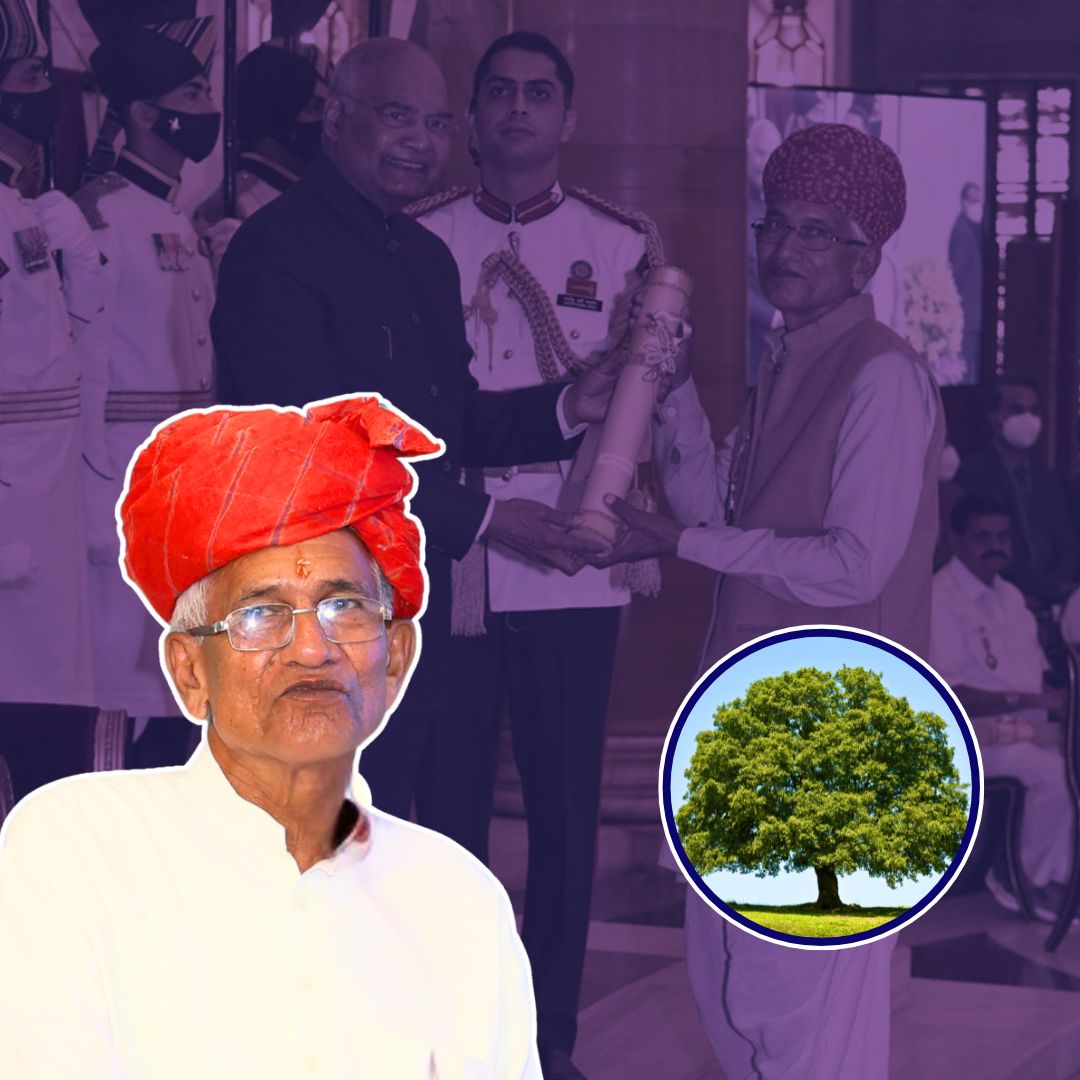Sundaram Verma, a pioneering farmer from Rajasthan’s arid Sikar district, has revolutionised dryland farming by growing over 60,000 trees with just one litre of water per sapling through his innovative “dry farming” technique.
By deep ploughing to conserve soil moisture during the monsoon, his method allows saplings to survive and grow with minimal irrigation. Recognised with the Padma Shri in 2020, Verma’s approach conserves millions of litres of water in a drought-prone region and has inspired farmers and officials nationwide to adopt sustainable, climate-resilient farming.
A Water-Saving Farming Breakthrough
In the water-scarce landscapes of Rajasthan, agriculture faces harsh challenges. Sundaram Verma’s breakthrough lies in his ability to harness natural rainfall and soil moisture efficiently. His method involves ploughing the soil around 20 centimetres deep during the monsoon to trap water underground, creating a natural reservoir. Saplings are then planted with roots developed long enough to draw water from this moisture reserve, requiring only an initial one-litre watering.
Over 30 years of fine-tuning, Verma has successfully grown more than 60,000 trees this way, achieving a high survival rate even in adverse climatic conditions. His wife, Bhagwati Devi, has been a significant support, contributing natural pest-control techniques that avoid chemical pesticides, further enhancing the eco-friendly approach.
Sustainable Crop Innovation and Community Impact
Besides trees, Verma is committed to promoting native and organic crops such as millets, mustard, and pulses that thrive in arid climates with minimal water. He has developed over 700 indigenous seed varieties, distributing them freely to farmers to boost yields and incomes sustainably.
Verma’s knowledge-sharing extends beyond his farm. He regularly trains farmers, students, and agricultural officers in Rajasthan and other states, helping to scale this water-efficient farming model. His efforts align with government programmes aimed at combating desertification and improving livelihoods, such as the National Innovation Foundation’s support and related environmental schemes.
Verma’s approach not only conserves precious water but also helps restore local ecosystems, mitigates climate risk, and empowers rural communities with resilient farming skills.
Recognition and Growing Influence
Sundaram Verma’s work has gained national recognition, earning him the Padma Shri award in 2019 among other accolades including the National Farmer Award and the International Crop Science Award. His method is increasingly seen as vital for dryland agroforestry and sustainable development.
Agriculturalists and government officials laud Verma for demonstrating practical, indigenous solutions that address water scarcity while supporting food security and ecological balance. His success story is documented widely across media, inspiring policymakers and farmers alike to rethink irrigation-heavy agriculture and move towards eco-sensitive, affordable techniques rooted in local wisdom.
Verma’s ongoing commitment to innovation and training continues to strengthen the movement toward sustainable rural futures.
The Logical Indian’s Perspective
Sundaram Verma’s example underscores how empathy, ingenuity, and respect for nature can create transformative change in challenging environments. His method honours the delicate balance between community needs and ecological preservation, offering a blueprint for harmony amid escalating climate challenges.
The Logical Indian believes stories like Verma’s highlight the power of grassroots innovation to foster kindness, coexistence, and resilience in rural India. They urge us to listen to indigenous knowledge and nurture sustainable practices that benefit all life forms.












